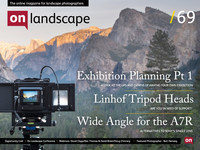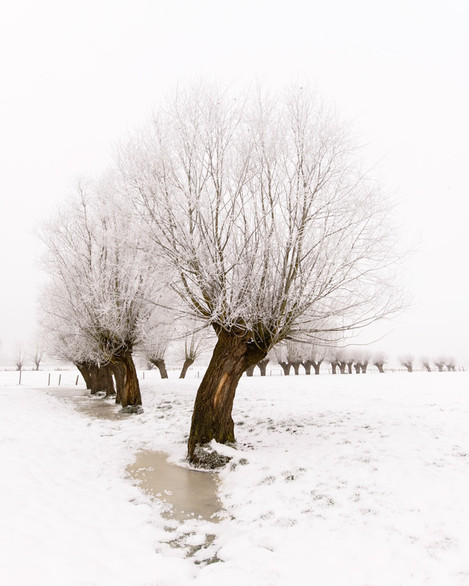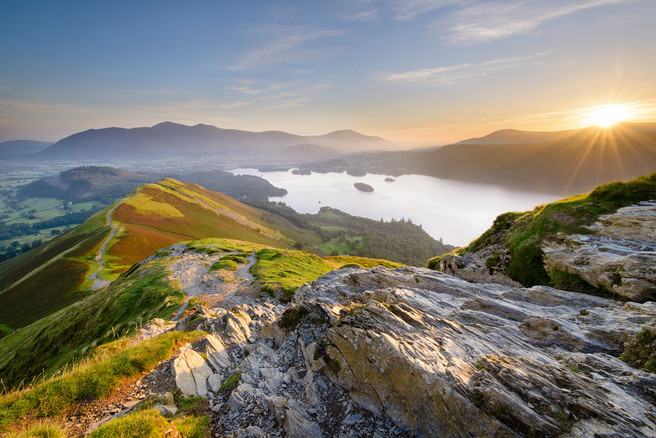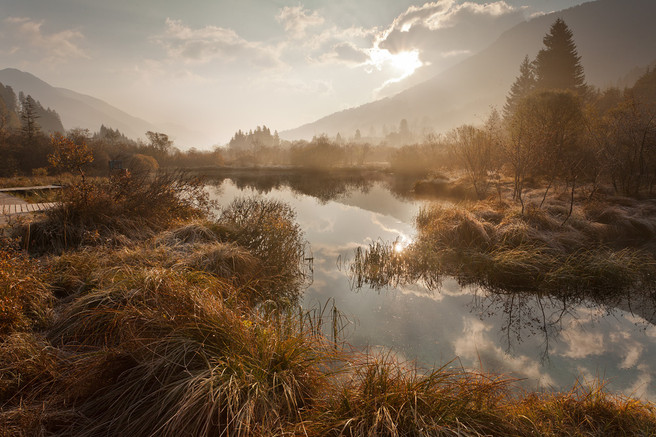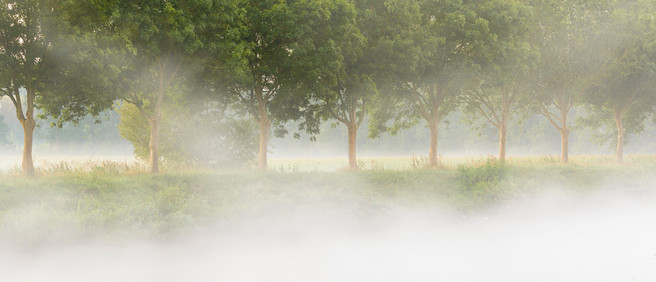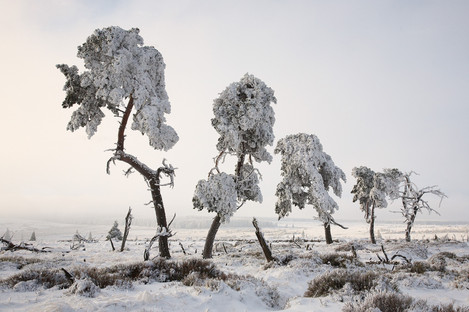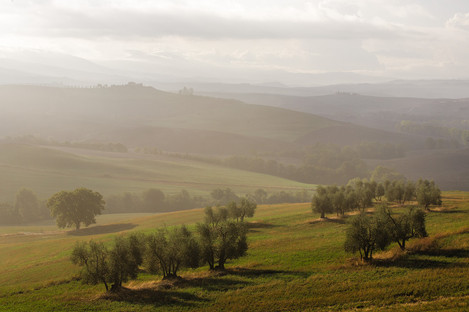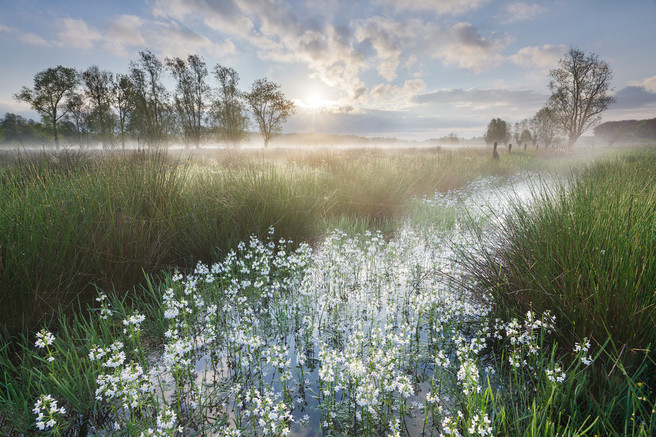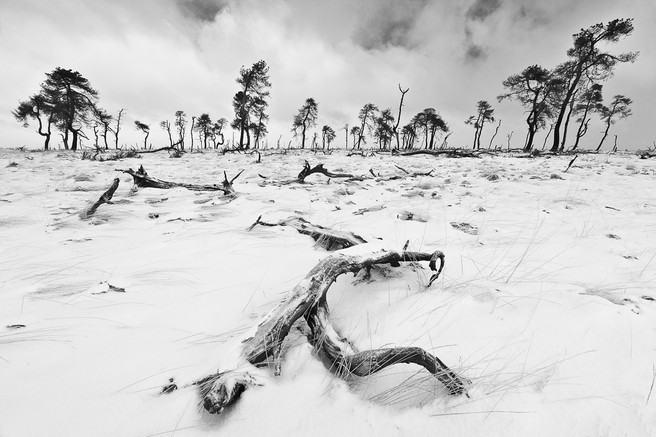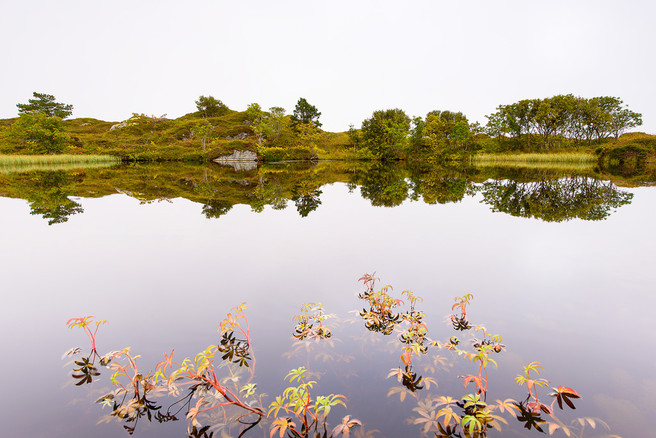Featured Photographer

Bart Heirweg
For me there is nothing more beautiful than life as a landscape photographer. When I get up at the crack of dawn and walk through the fields, I briefly feel like I am alone in the world and enjoy the peace and quiet. Each day I am amazed by nature in all its glory. As a nature photographer I am able to share these experiences with others. In this respect, I wrote several chapters of Praktijkboek landschapsfotografie and just published the book Silent Fields, a photography book on the Great War, together with the Belgian publishing house Lannoo

Tim Parkin
Amateur Photographer who plays with big cameras and film when in between digital photographs.
It's my pleasure to introduce our first Belgian featured photographer, Bart Heirweg. You may recognise a couple of Bart's images from various places but his image of Cat Bells in the Lake District won the Visit Britain award in last year's Landscape Photographer of the Year.
As long as I can remember I have been interested in nature. I grew up on the country side and was always to be found outdoors, buildings camps in the woods behind our house or collecting bugs and insects. At the age of 15 I started bird watching with a friend of mine. I did this very passionately for several years. We drove around the country to observe rare species and during spring and autumn we searched for rare migrants in the bushes and fields along the Belgian coast. In summer, when birds are more quiet, I observed butterflies and dragonflies. At the age of 18 I bought my first camera: an analog Nikon F80 with kit lenses, I think. It enabled me to capture the insects that I encountered in nature. Two years later my first real digital camera followed, a Nikon Coolpix 995. I used that camera mainly for digiscoping, when mounting it on my Leica telescope. A few years later I purchased a Canon D300 and a Sigma 150mm macro lens and from then on I got hooked on photography. I consider the winter of 2005-2006 as the point where I shifted from bird watching to photography. At that time my camera had become my most important tool and no longer my binoculars and telescope. I soon developed an interest in landscape photography and this has become my main focus since then. I still do some macro photography too, mainly in summer and I also still love to watch birds now and then.
What are you most proud of in your photography ?
I have been doing rather well in photo contests recently. Winning the Visit Britain award in the Take a view Landscape Photographer of the Year last year was a big thing for me.
Publishing my first book 'Silent Fields - Memorial sites of the Great War' has been another great achievement.
But probably the most important thing is that I have always dreamt of a career as a landscape/nature photographer. Making this dream come true has changed my life completely.
In most photographers lives there are 'epiphanic’ moments where things become clear, or new directions are formed. What were your two main moments and how did they change your photography ?
It might sound weird but the death of my father in 2008 made me realise that life is too short to do things you don't like. From that moment on I decided to follow my dreams: I quit my job and and started working hard towards becoming a professional landscape photographer.
I have been thinking a lot about my photography the past few months and I am trying to find new angles and trying to get to the next level (whatever that may be), so I think this year may well become one of those important moments in my career.
Tell me about why you love landscape photography ? A little background on what your first passions were, what you studied and what job you ended up doing
At the age of 19 I tried a master in Biology, but I didn't even finish my first year. At the age of 21 I think I had grown up a bit and started studying multimedia and communication technologies. In 2004 I started working as a web developer for about 7 years. In 2009 I switched to doing this part time, so I could further develop my photography career. In 2011 I finally quit my IT job and started out as a full-time photographer.
The most important part for me is still being outside, spending time in nature. I love watching the landscape being transformed by light and atmosphere. I love visiting new places, especially up in the north. My real passion is nature and something that I will love and be interested in for the rest of my life.
Could you tell us a little about the cameras and lenses you typically take on a trip and how they affect your photography.
I work with a Nikon D800E and a D600 as a backup camera. If I want to travel light I take both camera's, my Nikon 14-24mm f/2.8 or 16-35 f/4.0, 24-70mm f/2.8 and 70-200mm. If I go on a 'bigger' trip I usually add my 300mm f/4.0, 1,4 convertor and my 24mm PCE. I would like to start working more with the shift & tilt, but I haven't used it a lot and am still stuck in the learning process.
I love taking wide shots with lots of foreground, so the 14-24mm is definitely my most used lens and often at the widest end.
What sort of post processing do you undertake on your pictures? Give me an idea of your workflow..
I use Lightroom for RAW editing. My images get imported into a catalogue, are then keyword tagged and then edited in the develop module. General editing includes contrast, clarity and vibrance. Some images need some highlights, shadows, whites or blacks adjustments too. I rarely use the saturation slider. These are my 'basic adjustments' and most images don't need much more processing then this. I always try to keep it natural.
I use Photoshop for things that are impossible or difficult in Lightroom. Removing dust spots, stitching a panorama, manual blending or removing an annoying electricity wire or an airplane is something I usually do in Photoshop.
The final image is then exported to a tiff file which becomes my master file. The tiff file is then resized to different formats for website, image library, Facebook, etc.
The keywords that were entered during import in Lightroom are also used in the search engine on my website.
Do you get many of your pictures printed and, if at all, where/how do you get them printed ?
I don't print much. I would love to do my own printing but I can't justify the investment of a decent large format printer for now. If I need to print an image I send them to a professional print lab near where I live.
Tell me about the photographers that inspire you most. What books stimulated your interest in photography and who drove you forward, directly or indirectly, as you developed ?
I think it was Outdoor Photography magazine which first sparked my interest in landscapes.
There have also been many photographers who I admire a lot and who have been an immense source of inspiration and motivation. One of the first books I bought was 'First Light' by Joe Cornish (I think you know him ;-) ). I think Joe is one of the finest and technically skilled landscape photographers out there. I also love the work of Charlie Waite a lot. His book 'The Story of 50 favourite photographs' was also one of my first books. 'Waiting For the Light' by David Noton sparked my interest in preparing and waiting for the light and in 2009 I did a workshop in Skye with Ian Cameron, he has been an influence too since then.
I also love the work of Vincent Munier, Sebastião Salgado, David Ward, etc.
I must say that I have bought about every book of the photographers mentioned above and there are many other photographers who I really like.
Tell me what your favourite two or three photographs are and a little bit about them.
I find it difficult to choose favourite photographs, because this can change quickly. I'd probably go for my most personal work and 'non'-iconic landscapes.
1. This image was made in a small and relatively unknown nature reserve near where I live. I organised a workshop there and had been preparing it in the days before. It had been rainy and cloudy for most of the days, but that particular morning everything came together. Good light, a few clouds and a little bit of fog. It was a lovely morning and I managed to get quite a lot of decent images. Although I prefer to use graduated neutral density filters this is an exposure blend. Although I would love to say that I had been waiting for this particular shot for hours, I actually came past it accidentally and the shot didn't take much longer than 20 minutes.
2. This location on the High Fens in Belgium was not easy to reach. The wooden path had been burnt during a big fire in summer and I had to walk through the moors covered in a thick layer of snow for quite a distance. The location itself is very surrealistic, it's a burnt pine forest (it has actually been burnt twice by now) in the middle of a wide open space on the moors. The black burnt trees and the thick snow work very well for a B&W conversion.
3. This is a recent image from the Lofoten. It's a small pond near Fredvang in thick mist. I really like it because I think it's something different, not a classical landscape, rather simplistic and a bit high-key.
If you were told you couldn’t do anything photography related for a week, what would you end up doing (i.e. Do you have a hobby other than photography..)
I'd probably go bird watching, spent time outside or book a trip. It would be difficult though to leave the camera at home. If it where raining I'd probably spend some time with my wife, family and friends.
What sorts of things do you think might challenge you in the future or do you have any photographs or styles that you want to investigate? Where do you see your photography going in terms of subject and style?
I think the biggest challenge is to stay creative and to keep getting better in what you do, so that will probably be the most challenging thing for the rest of my career. I would also like to publish another book solely dedicated to landscapes.
I like 'pure' photography, so if things gets to experimental I kind of lose it. I can see that photography is changing and is getting more experimental, I honestly hope that there will still be room for a simple landscape in good light and atmosphere.
Who do you think we should feature as our next photographer?
Maybe Ian Cameron or Adam Burton. I really love their work.
Thanks for Bart for the interview and if you want to see more work by Bart you can visit his website at bartheirweg.com or on social media at Facebook or Twitter @

